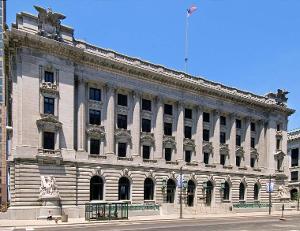ROGER STEARNS
BANKRUPTCY ATTORNEY TEL: 216.521.0200 CH 7 / CH 13
CHAPTER 7 BANKRUPTCY : Initial Case Filing, Trustee & Meeting of Creditors
Chapter 7 bankruptcy is a legal case filing initiated by the filing of what is known as a "Voluntary Petition." The Voluntary Petition lists the debtor's basic personal information such as name, address, prior case filings in the past 8 years, type of case, whether any dispute with a landlord is pending, and other information to identify the filing party, called a "Debtor." A Chapter 7 bankruptcy fling can be a joint filing by two legally married individuals. The Debtor's social security number is never published in a Chapter 7 bankruptcy case filing.
The Debtor is required to file various information "schedules" to inform the court and creditors about the Debtor's real estate interests, personal property, leases, creditors, income and expenses. The Debtor is also required to file a Statement of Financial Affairs, under which 25 questions are answered to further round out the financial disclosures of the Debtor(s). The Debtor is also required to file a document known as a "Means Test," or Bankruptcy Form 22(A). The Means Test is a schedule attached to the Voluntary Petition wherein the Debtor completes a financial disclosure and a sort of formula to determine if the Debtor is eligible to file a Chapter 7 bankruptcy case. The Means Test can raise some complex issues, but in basic terms it is a determination based upon household size and income whether the Debtor(s) is/are under a certain threshold of financial distress determined by the U.S. Congress to justify proceeding under Chapter 7.
Chapter 7 bankruptcy is a "liquidation" bankruptcy. This means that when a Chapter 7 case is filed, the Debtor(s) is/are consenting to the sale of non-exempt property by a Chapter 7 Trustee to compensate creditors fully or partially for the Debts listed on the schedules. One of the reasons you may want to consult with an experienced bankruptcy lawyer is to receive advice on what property of yours would be protected, or "exempt," in your Chapter 7 bankruptcy case. Exempt property cannot be attached and liquidated ( "sold") by a Chapter 7 Bankruptcy Trustee.
You may be asking yourself, "who is a Chapter 7 Trustee?" A Chapter 7 Trustee is an attorney who is admitted to a panel of attorneys who are supervised by the United States Department of Justice, Office of the United States Trustee. In the Cleveland area ( Cuyahoga, Lorain, Lake and Geauga ) and the Akron area ( Summit County), the Panel Trustees report under Region 9 of the U.S. Trustee System. The Panel Trustees in our District ( the Northern District of Ohio) are not employed by the United States Bankruptcy Court. They are appointed and supervised by the United States Department of Justice.
The Chapter 7 Panel Trustee represents the general unsecured creditors in your case. When a Chapter 7 bankruptcy case is filed, a Chapter 7 bankruptcy trustee is appointed in your case. The case upon being electronically filed is scheduled for a Meeting of Creditors. The Meeting of Creditors is a semi -formal court proceeding the Debtor(s) is/are required to appear personally at. The Chapter 7 Panel Trustee will swear in the Debtor(s), verify the Debtor(s)' identity, and then ask the Debtor(s) questions related to the filed Chapter 7 Voluntary Petition and Schedules.
